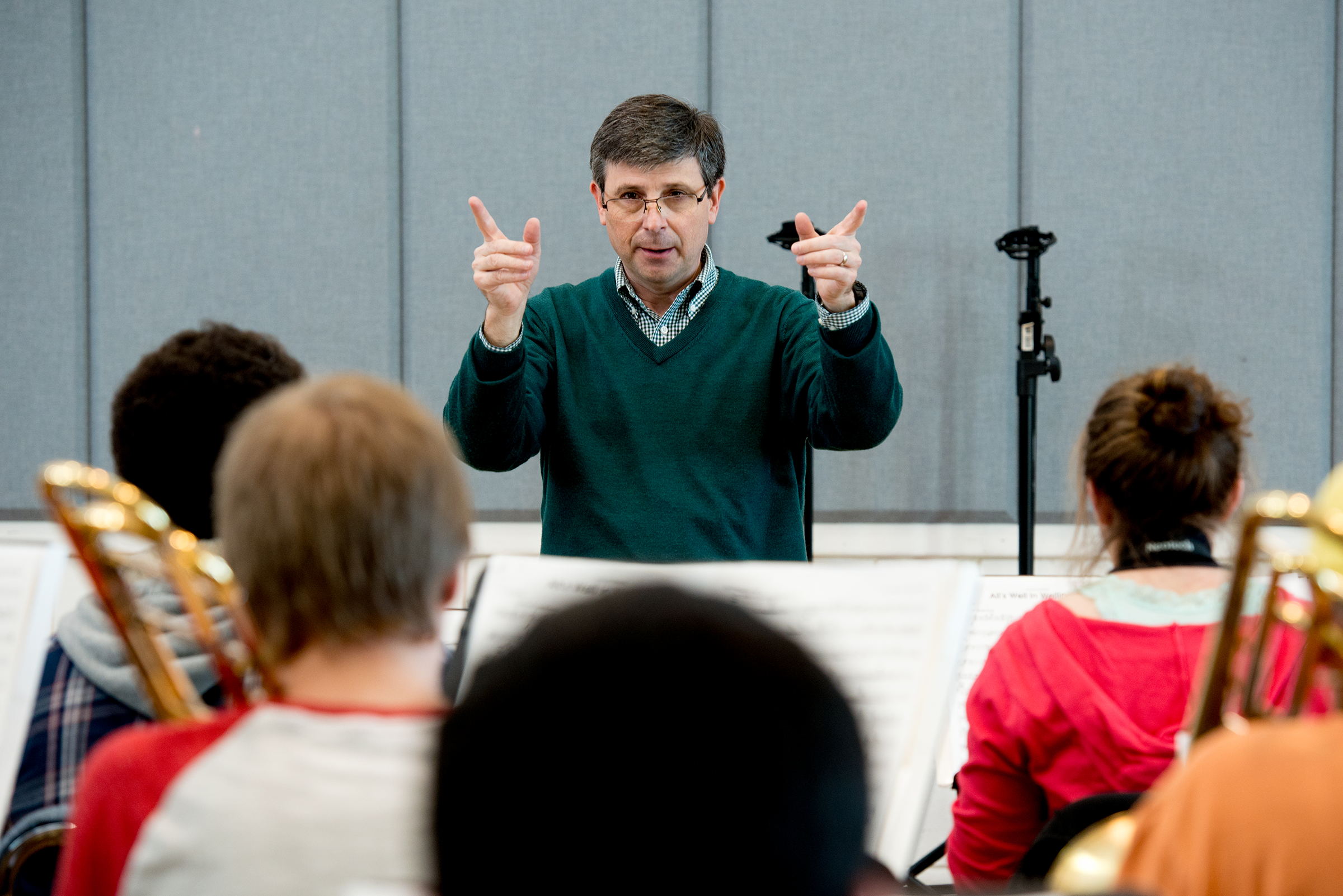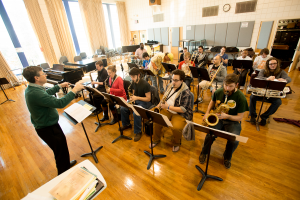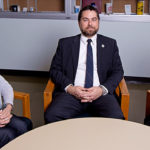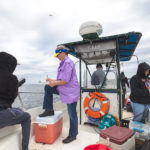Spaniola Creates Music, Teaches People How to Listen
Dr. Joseph Spaniola has spent 37 years composing and arranging music. For the last nine years he has drawn on these skills to teach students in the music department at the University of West Florida. His classes range from music theory to the history of rock ’n’ roll.

“Preparing the professional musicians of tomorrow,” is the way Spaniola describes his teaching life, and he thinks instilling a sense of inquisitiveness and the determination to stay focused are his main duties as director of music theory and jazz studies.
“We do, after all, call music a discipline,” he said during a recent interview in his office on UWF’s main campus. “It’s a mindset we cultivate, and one day they could be my colleagues.”
Spaniola’s eclectic, award-winning compositions and arrangements run the gamut of genres and have been performed and recorded all over the world. He earned his bachelor’s and master’s degrees from Michigan State University, and he has a doctorate in composition from the University of North Texas.
Q: How has the way we listen to music evolved?
Spaniola: Prior to the advent of radio and recordings, you had to be there when the music was being performed. Listening to music was more like an event. You listened to it when it was live. You couldn’t turn it up or down or skip ahead. Also, now we have a broad spectrum of styles to choose from. Traditionally in history, there were major trends during certain periods, the Renaissance or Romantic, for instance, and so there were fewer choices. With fewer choices, there was more of a consensus. A listener would know what to expect.
 Dr. Joseph Spaniola leads the jazz ensemble rehearsal at the University of West Florida.
Dr. Joseph Spaniola leads the jazz ensemble rehearsal at the University of West Florida.
Q: How does setting affect the listening experience?
Spaniola: We are so inundated by music these days that sometimes people only notice the absence of it. They’ll walk into a situation somewhere and say, “It’s too quiet.” On the other hand, a friend of mine can’t listen to music when he drives because he is such an intense listener he becomes too distracted. Listening to a performance in a symphony hall is an entirely different experience than listening to a band playing on the beach somewhere. One is not better than the other, but they are markedly different.
Q: Will you describe what happens when someone asks you to compose a piece of music?
Spaniola: It varies widely. Music is communication. Defining a clear vision of what is to be communicated is essential in the compositional process. The vision helps keep the composer on track through the creative process. It makes it possible for the composer to determine which musical materials are effective in realizing the final goal.
Q: What can you tell us about the piece that will be played at the International Double Reed Society Convention in the fall at Columbus State University in Columbus, Georgia?
Spaniola: It’s called “Rendezvous with a Dream,” and 15 years ago I wrote the piece for a bass clarinetist. Then, I created a version for bassoon. Abigail Walker, one of my colleagues here in the UWF music department, will play it. I’m very pleased that she liked the piece and that it will be shared.
Q: What can you tell us about your recent accomplishment of being named Commissioned Composer for the Florida State Music Teachers Association?
Spaniola: A retired colleague of mine, Lynne Lauderdale, nominated me. I then sent in a bio and a portfolio to the review committee. After the review of all of the nominee’s materials, I was selected. Now, I will compose a piece to be played at the next conference. There are no limitations regarding style, length or size of ensemble. It’s not set in stone yet, but I am thinking of creating new music for maybe four or five performers. I would like to ask my colleagues here at the school to play. It would be nice for me, my colleagues and the university to get that kind of exposure.
This article is part of a collaboration between WUWF and the UWF Center for Research and Economic Opportunity.



